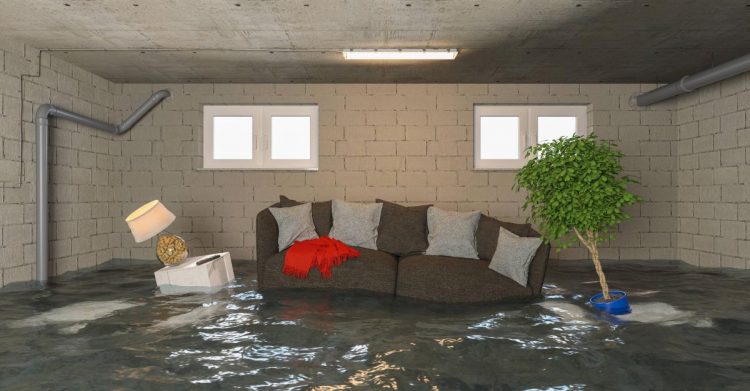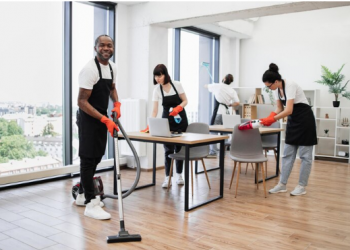If you’re one of the thousands of families who has been devastated by a flood, you know that life is never the same after. Everything you once knew and depended on is gone, and you have to start from scratch to rebuild your life. It’s hard, but it’s not impossible.
What to do when a flood hits
The first thing you need to do when a flood hits is to assess the damage. This means taking stock of what has been lost and what can be salvaged. It is important to be as realistic as possible about what is gone and what can be saved. Once you have done this, you need to start the process of cleanup and repair. This can be a laborious task, but it is important to remember that you are not alone. There are many organizations and individuals who can help you get your life back on track after a flood.
The second thing you need to do is to take care of your health and safety. This means making sure that you and your family are safe and healthy. It is also important to be aware of the dangers that can come after a flood. There are many health risks associated with floodwaters, so it is important to take precautions and seek medical attention if necessary.
Finally, you need to focus on rebuilding your life after the flood. This means getting your home and community back up and running. It can be difficult to start over, but it is important to remember that you are not alone in this process. There are many people who have gone through this before and there are resources available to help you rebuild your life.
Emotional effects of a natural disaster
After a natural disaster, it’s common for people to feel like they’re in “survival mode.” This means that they’re focused on the basics of day-to-day living and may not have the capacity to deal with more emotional issues.
Unfortunately, this can lead to long-term problems, such as anxiety, depression, and post-traumatic stress disorder (PTSD). It’s important to understand that these reactions are normal and that there is help available.
There are many organizations that provide counseling and other support services for people who have been affected by a natural disaster. These resources can be invaluable in helping you to cope with your experiences and start to rebuild your life.
How to salvage your belongings
Life after the flood can be a daunting task. Not only do you have to deal with the emotional aftermath of losing your home and possessions, but you also have to figure out what to do with everything that’s left.
The first step is to sift through the wreckage and salvage anything that can be salvaged. This can be a difficult and emotionally charged task, but it’s important to remember that your belongings are just things. They can be replaced, but you can’t.
Once you’ve salvaged what you can, the next step is to begin the process of cleaning and disinfecting everything. This is essential to prevent the growth of mold and mildew, which can quickly cause further damage to your belongings. In some cases, you may also need to have your home tested for asbestos. If asbestos is present, you’ll need to hire a professional to remove it before you can begin the restoration process.
Finally, once everything is clean and dry, you can start the process of sorting through and organizing your possessions. It’s a lot of work, but by taking it one step at a time, you’ll eventually get your life back in order.
Temporary housing and financial assistance
Floods can happen with little warning and can cause significant damage to homes and personal property. If you have been affected by a flood, you may need to find temporary housing while your home is being repaired.
There are a number of different options for temporary housing, including renting an apartment or staying in a hotel. You may also be eligible for financial assistance to help cover the cost of temporary housing.
For example, the Federal Emergency Management Agency (FEMA) provides disaster assistance to eligible survivors of major disasters, such as floods. FEMA’s objective is to help people get back on their feet as soon as possible after a disaster. If you have been affected by a flood, contact your local FEMA office to learn more about what assistance might be available to you.
Cleaning up and restoring your home
Pre-purchased and building inspections specialists from My Building Inspector recommend cleaning up and starting the restoration process as much as possible. The longer you wait, the greater the risk of further damage from mold, mildew, and other potentially harmful growths. However, it’s also important to be safe, so be sure to take proper precautions before beginning any work.
Once you’ve determined it’s safe to enter your home, open all the doors and windows to air it out. Then, start by removing any damaged items from the premises. This will help prevent the spread of mold and mildew.
Finally, repair any structural damage and start the process of restoring your home to its pre-flood condition. For example, underground water tanks need to be inspected for damage and then pumped out and refilled. You may also need to replace any damaged pipes or electrical wiring. If your home has been flooded, take the time to clean and repair it properly so that you can prevent future problems. With patience and careful planning, you can get your home back to normal after a flood.
Dealing with insurance companies
After the flood, many people find themselves struggling to deal with their insurance companies. In many cases, insurers will try to minimize the amount of money they have to pay out, often by denying claims or offering low settlements.
This can be extremely frustrating for policyholders, who are often left with little choice but to accept the insurer’s decision. However, there are a few things you can do to improve your chances of getting a fair settlement from your insurance company.
First, make sure you understand your policy and what it covers. Next, document all damage to your property and keep receipts for any repairs or replacements you make. Finally, don’t be afraid to negotiate with your insurer; in some cases, it may be possible to reach a compromise that is acceptable to both parties.
Closing Thoughts
No one wants to think about the possibility of a flood, but it’s important to be prepared. By following these tips, you can help protect your family and property in the event of a flood. What other steps do you take to prepare for floods or other natural disasters?









